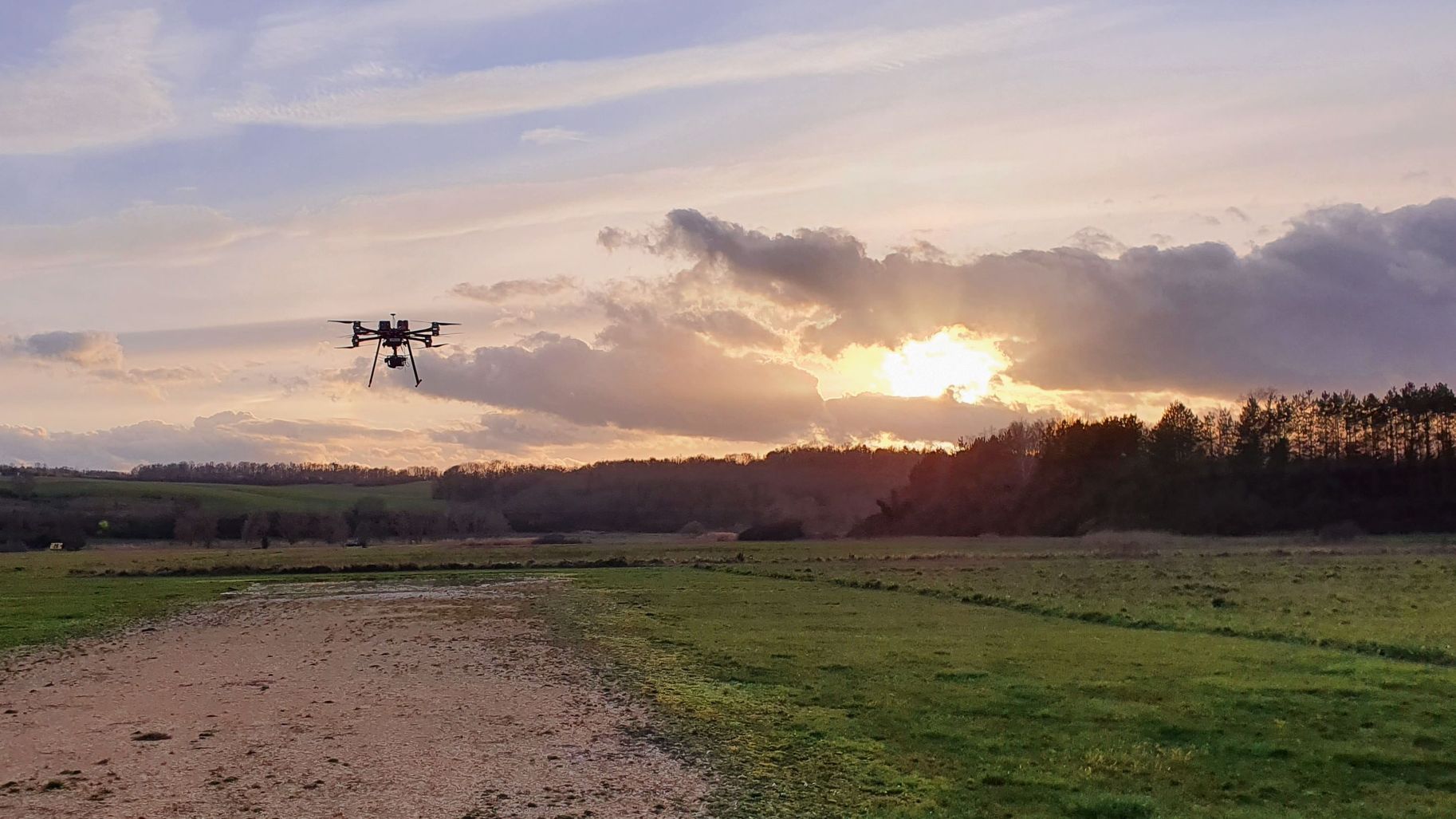Alerion: drones designed for professionals
Date:
Changed on 23/11/2023

My ambition is to democratise the use of professional drones, as is the case for recreational drones. As my president and co-founder Anne-Sophie Didelot has said, “Whether it's saving time and money or reducing risks for human operators, drones can provide genuine added value in a whole range of sectors”. With a view towards developing bespoke and smart drones, I took the decision to focus on research and development. With my team of engineers specialising in unmanned systems and artificial intelligence, I have taken part in a number of group research projects over the years. Through financial support from the Horizon 2020 programme, the European Regional Development Fund, the FUI (Fonds Unique Interministériel - the Single Inter-Ministry Fund) and my region, I have established partnerships across Europe with universities, research laboratories, major industrial groups, SMEs and other start-ups. As part of the MultiDrone project, for example, I worked with Thales on designing a swarm of drones capable of working with each other for broadcasting sport events.
Here is my origin story: Laurent Ciarletta, a lecturer-researcher in IT and telecommunications at Loria and head of the SIMBIOT research team, began using drones for educational purposes before developing an interest in them as a research object and starting to develop their potential. After he met Anne-Sophie Didelot via the Incubateur Lorrain, I was officially born in June 2015. I spent my first five years at the Inria Nancy - Grand Est research centre within their transfer and innovation space, an environment that greatly aided my development. On 1 January 2021 I moved to the Artem campus, where I have continued to receive support from Creativ’Lab. “Through this platform we are able to use infrastructure we otherwise wouldn’t be able to invest in, such as 3D printers or drone netting cages”, explains Anne-Sophie Didelot.
A PhD in materials chemistry and physics, Anne-Sophie Didelot was employed as head of a mechanical testing laboratory at the Technological Resource Centre, where she used patented technology for the characterisation of materials. She attracted the attention of the University of Lorraine, which was seeking to launch a start-up based around this technology, and would go on to work on the creation of ProViSys Engineering between 2010 and 2014. “I may have chosen not to pursue it further, but that was what gave me my first taste of entrepreneurship. I enjoy the challenge of creation: starting from scratch, coming up with a strategy, putting things in place, creating a support team, all of that. I also enjoy the multi-faceted nature of it: one day I might be working on management and then the next I’m working on commercial development or doing the accounts. No two days are the same.”
My aim is to develop secure drones with a range of different features in order to respond to the needs of my clients. “At Alerion we develop functional, cyber-physical components. Combining software and hardware, once implemented onto the drone they deliver security and autonomy, in addition to developing the drone’s intelligence and giving it additional functions by adding probes and sensors”, adds Anne-Sophie Didelot. Through my various different projects, I have given life to drones capable of flying automatically to follow a mission, automatically detecting errors, acquiring and transmitting specific sensors data and avoiding unexpected obstacles. They have been used to monitor the electricity grid in the Grand Est region, the perimeter fences around Caen airport and the penstocks for EDF hydraulic dams.
With innovative rotor blades capable of rotation - enabling it to both fly and sail - the amphibious hydradrone is one of my greatest achievements. I developed this prototype for Pedon Environnement & Milieux Aquatiques (PEMA-Groupe PINGAT), who were the first partner to place their trust in me. “As hydrobiologists, our work involves carrying out diagnostics, impact studies and expert assessments for projects (in manufacturing, on roads and on railways) linked to aquatic environments and their fauna”, explains Anne Ribayrol-Flesch, managing director of the Pingat group’s “Water & Environment Hub” and founder of PEMA. “In flying mode, the Hydradrone can be used to obtain an aerial view of a waterway, to view our boat’s mooring equipment, to identify sampling stations, homogeneous areas of waterways and breeding grounds or to analyse hydromorphology. In sailing mode, the drone can perform water analysis, instantly relaying results to the computer. The Hydradrone provides genuine added value, improving the quality of our work by saving us time while we explore aquatic ecosystems.”
My president is currently looking to enter into partnerships with professionals and is not limiting us to any particular sector: “Research projects have given us legitimacy, allowing us to demonstrate the extent of our expertise, to prove our credentials and to establish vital partnerships. What we want to do now is to reach out to manufacturers and to convince them of the benefits of investing in an innovative drone.” My aim is to help them to develop their activity through drones. As part of this strategy, I recruited a commercial development and digital marketing manager. If 2021 goes according to plans, I am also keen to expand our technical team by recruiting embedded systems engineers. “We also plan to continue with our research projects in order to remain at the cutting edge and to work with expert partners in the rapidly changing sectors”, adds Anne-Sophie Didelot.